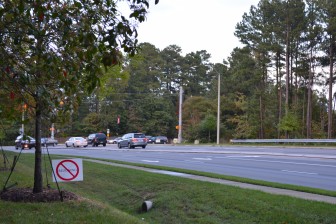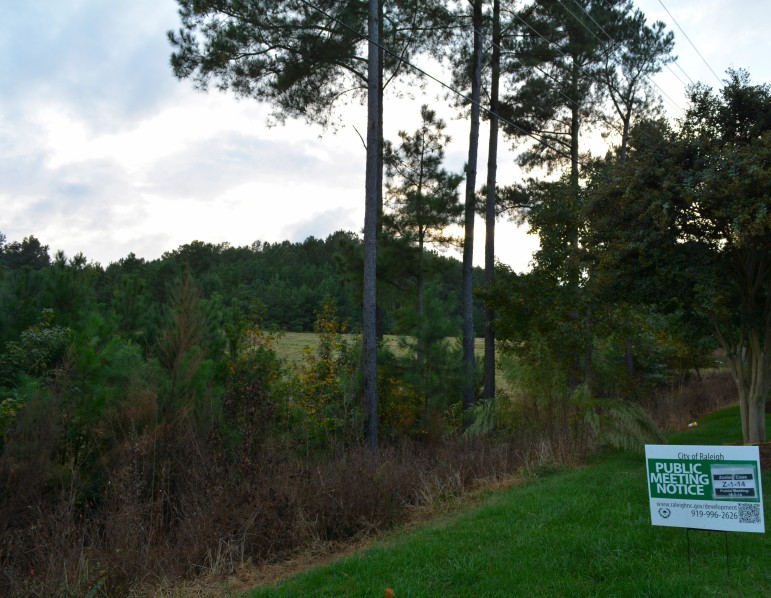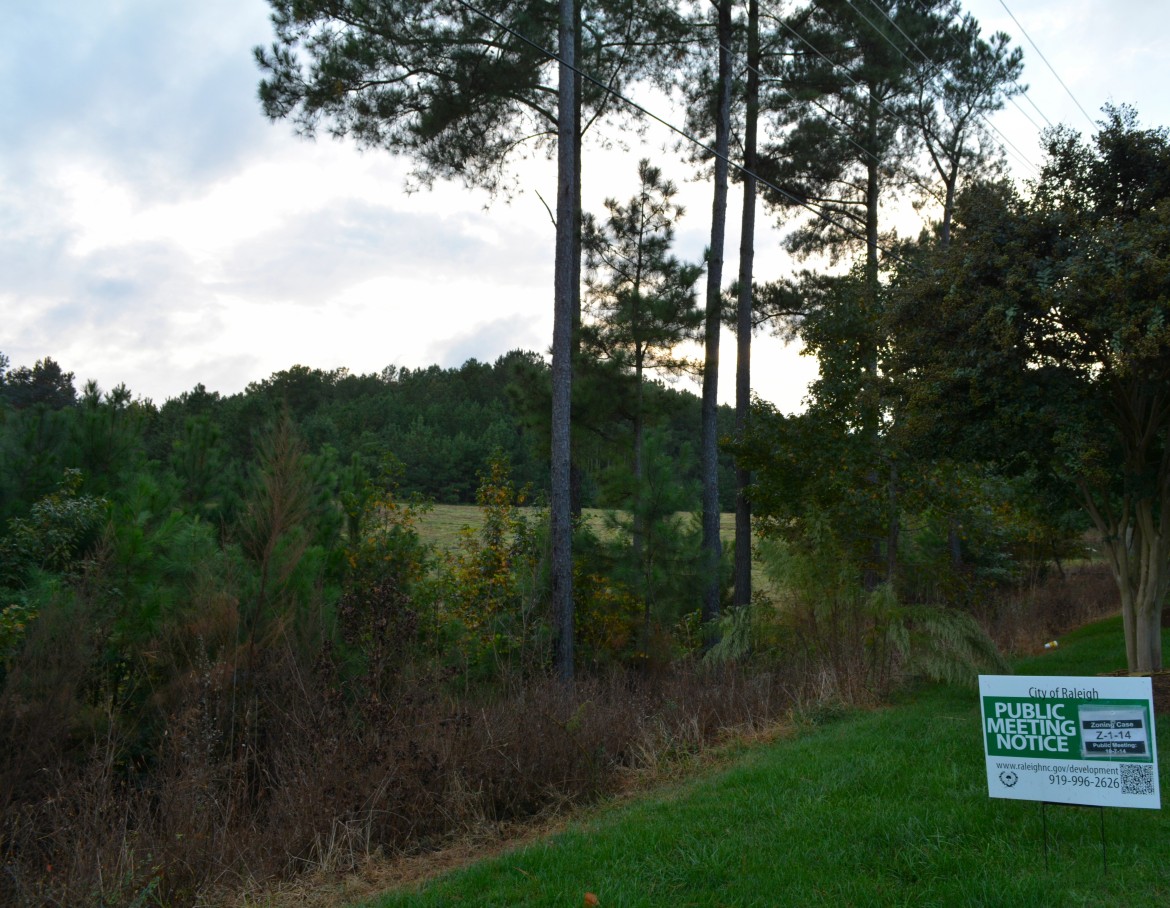Controversial rezoning case Z-1-14 was denied Tuesday night after councilors reached an agreement that the case was neither reasonable nor in the public’s interest.

James Borden / Raleigh Public Record
Signs protesting the proposed development were featured prominently along Falls of Neuse Road
Had the rezoning been approved, developers would have been able to move forward with a planned shopping center on an empty plot of land off Falls of Neuse in North Raleigh.
Original plans called for the center to be anchored by a 50,000 square foot Publix, although developers scaled back these plans following neighborhood feedback.
The case highlighted a struggle between existing communities and developers answering the call for increased density within the city. Four valid statutory protest petitions had been filed against the case, which means it would have required 3/4 majority approval by city council, and the North citizens advisory council voted 522-23 in disapproval of the case.
Moving Away From Urban Sprawl
When interviewed in early May, planning commission chairman Steven Schuster said the comprehensive plan and the policies outlined in it represent a departure from the urban sprawl policy that dated back to the 1950s. Because Raleigh was quickly growing as a city, officials elected to make the city denser rather than let it continue to spread.
The result was a plan for citywide remapping.
Rezoning requests, which are made to city staff and analyzed to see whether they are consistent with the policies in the comprehensive plan, are used by “folks [who] want to move forward in a more timely way,” according to Schuster. To be approved by the planning commission, rezoning cases must usually be considered to be consistent with the comprehensive plan and in the public’s best interest.
Schuster said deciding what’s in the public’s best interest can be challenging at times. The goal is to look at what is in the best interest of the city, which may cause tension within individual communities.
A Long-standing Dispute
That tension was showing in the final planning commission hearing for Z-1-14, which occurred February 10. Mack Paul from Morningstar Law Group represented the applicant Morgan Property Group. He spoke about the development in the Falls of Neuse corridor.
“This was always the one location that we identified for retail use in this corridor,” Paul said.

James Borden / Raleigh Public Record
This site could may have once been developed into a shopping center with a 50,000 square-foot anchor store
At that meeting, David Cox, representing the neighborhood, presented a petition with 3,800 signatures that recommended denial of the rezoning. He expressed that the rezoning would not be in the public’s best interest.
“Our long-standing position on the rezoning of this property is not to rezone this property,” Cox said. “We support development under the current zoning conditions.”
The case was first heard — and deferred — by the planning commission in October of 2014, but has been a source of controversy for even longer. In November of 2013, when planning commissioners gave the go-ahead to get the process started, they warned that the developers would face a long rezoning fight over the project.
At the time, commissioner Joseph Lyle noted, “This is going to be a difficult rezoning.”
Due to the controversial nature of the case, Schuster asked each member at the February 10 meeting of the planning commission to explain their views and which way they would vote on the case — either for recommending approval or for recommending denial.
A Surprising Victory
It turned out to be a landslide, in the opposite way the community had been hoping. The planning commission voted 8-1 recommending approval of the case. The dissenting vote was cast by Joseph Lyle, who stated at the meeting that planning commission members should take into account VSPPs and CAC votes.
Schuster said all the planning commission does is make recommendations. The elected officials make the decisions. And sometimes they agree with the planning commission and sometimes they don’t. He added that while the planning commission adheres to a strict set of rules, city council has the authority to change those rules. City Council can have a direct impact on what happens in a neighborhood.
“I think it’s critical that communities and neighborhoods band together to voice their views to the planning commission and city council,” Schuster said.
The community did just that, and Z-1-14 was denied.
